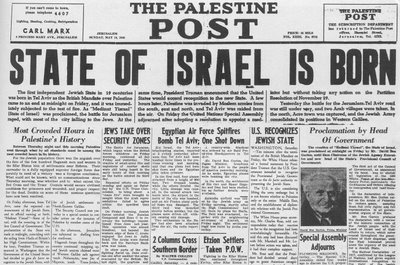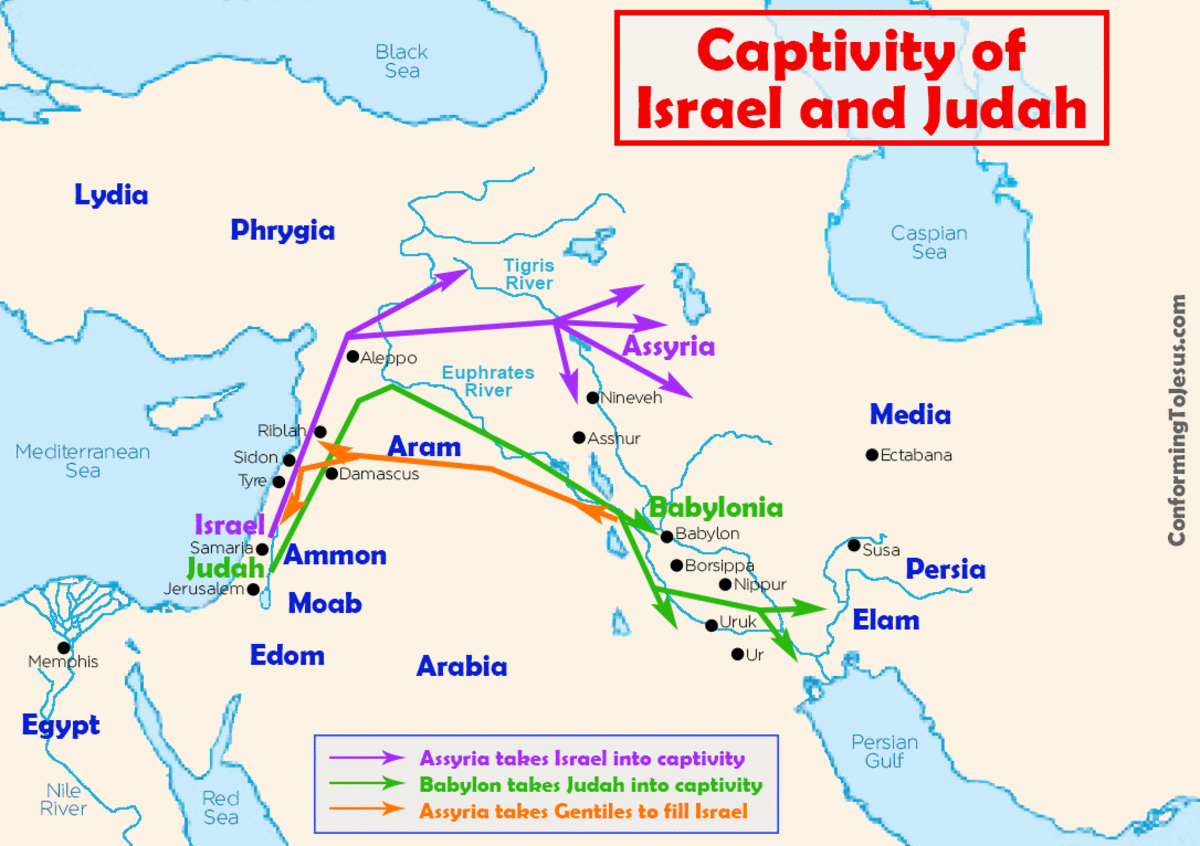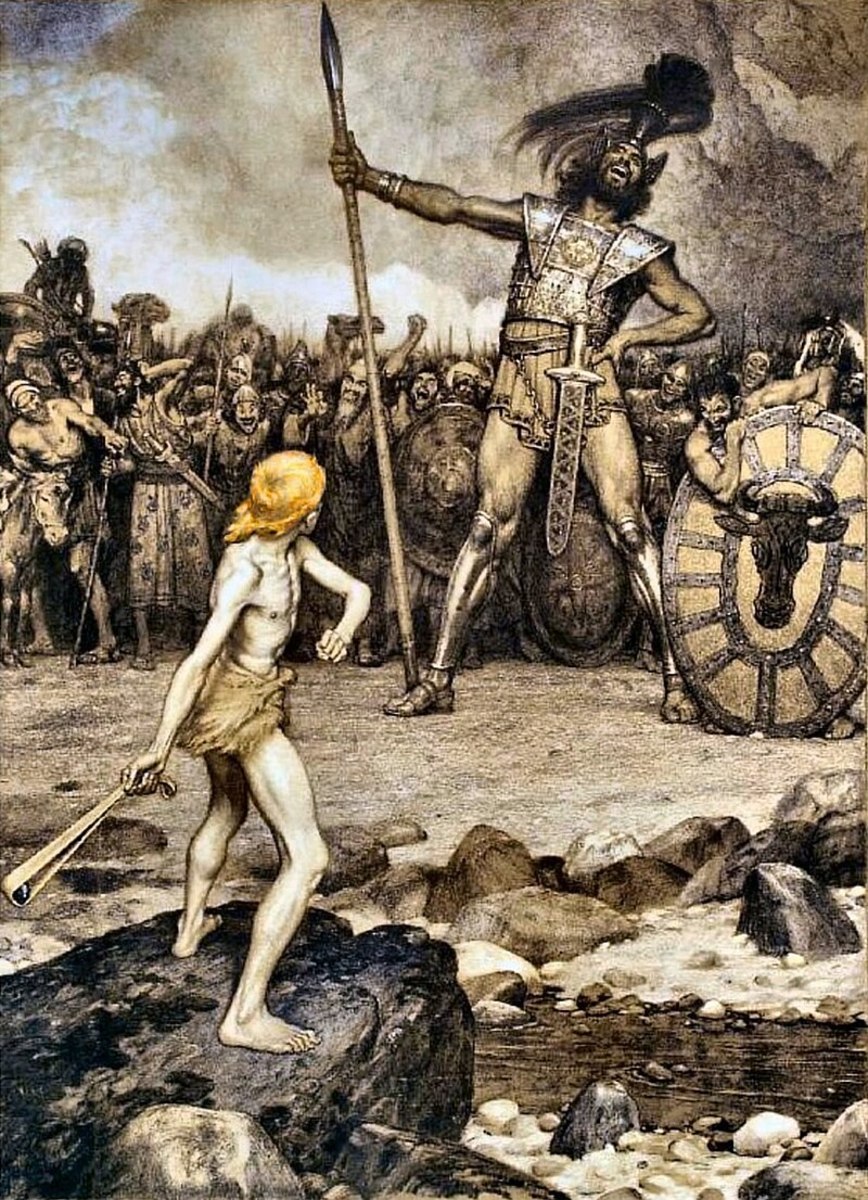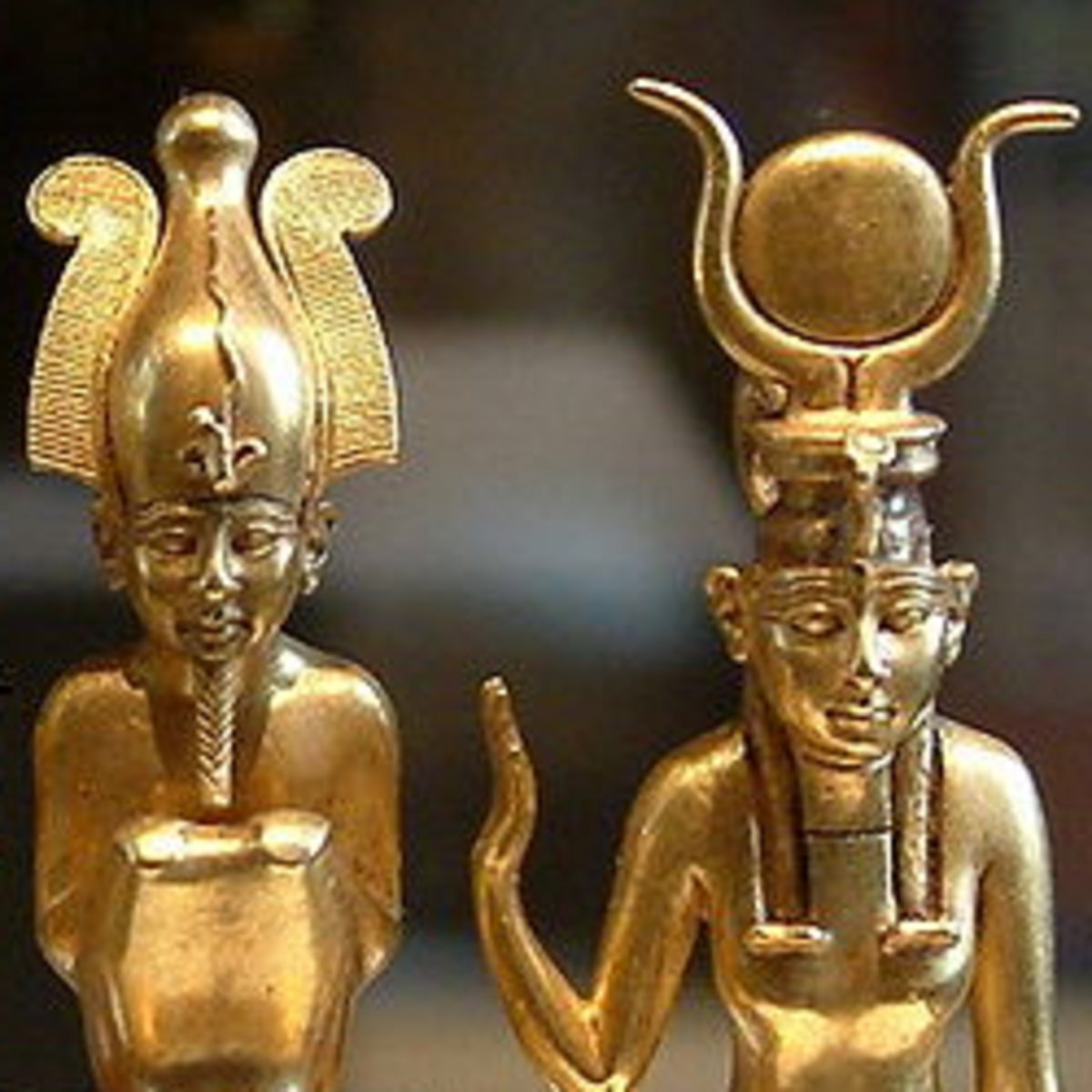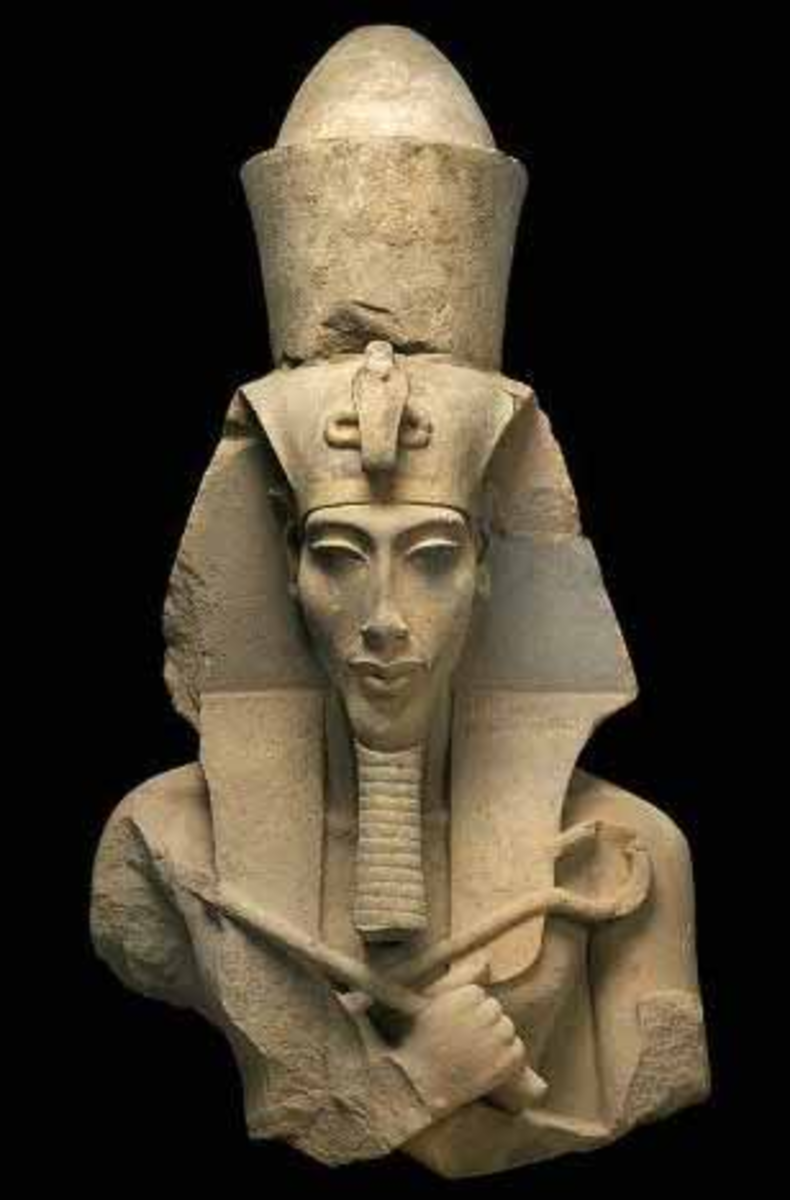A Completely Boring Look at the Development of Zionism and Palestinian Nationalism prior to the Creation of Israel
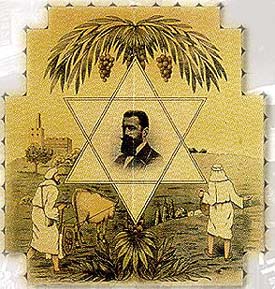
The concept of Zionism began largely in an intellectual climate. Jewish intellectuals like Nachman Krochal and Perez Smolenskin both emphasized the peoplehood and unity of the Jews. Ben Yehudah’s efforts in the revival of Hebrew, as well as his emphasis on the effect this would have on a Jewish renaissance, and Moses Hess, who desired a socialist commonwealth in Palestine were both instrumental in the formation of early Political Zionism.
As anti-Semitism increased throughout Russia and later Western Europe, the idea of a Jewish homeland seemed more and more of a necessity. Anti-Jewish pogroms led to the first instances of Jewish immigration to Palestine, but Theodor Herzl went a step further with his assertion that assimilation was impossible, and the only solution to the “Jewish problem” was to establish an independent Jewish state. Herzl, the so-called father of modern Zionism, was more or less inspired to push for Zionist thought after the Dreyfus affair, in which prejudice against Jews was starkly evident. But Herzl’s Zionism, in contrast to later ideologies, was political in nature, and was desirous of a modern, progressive nation, not a “Torah-dominated polity fashioned in the image of the Old Testament.” One of Herzl’s greatest achievements in this arena was the formation of the Zionist Organization, formed at the First Zionist Congress at Basel, Switzerland in 1897.
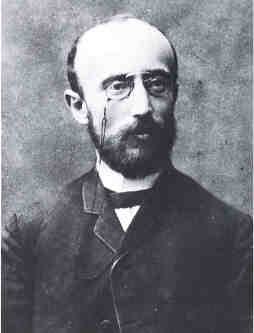
Cultural Zionism, espoused by Asher Ginsberg, placed a larger role upon the cultural heritage of the Jewish people, as well as its history and unique identity in the world. Although an agnostic, Ginsberg wished for greater integration of Judaism within the Jewish state, and this led to conflicts with both Orthodox Jews and Herzl supporters. Ginsberg and Herzl did agree, however, that careful planning was crucial to the settlement of Palestine. Proponents of Practical Zionism under Chaim Weizmann wanted immediate and direct action in Palestine, and emphasized social and economic equality within the Jewish state. As Tessler writes, “Ideological and tactical differences among Political, Cultural and Practical Zionism eventually gave way to structured competition among Zionist political parties advocating either secular socialism, capitalist free enterprise, or religious piety.”
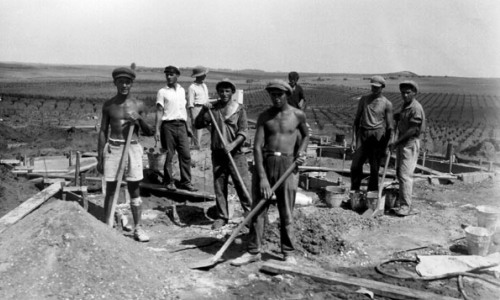
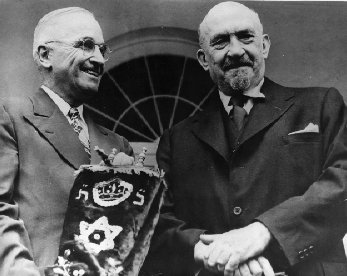
As the Yishuv (Jewish immigrants who lived in Palestine prior to the creation of the state of Israel)became more established after the first and second Aliyas (Jewish immigration to Israel), Zionism thought shifted from Europe and Russia and focused more upon the Yishuv. A shift towards Labor Zionism, which saw salvation in the attainment of a sort of socialist utopia, where Jewish laborers would collectively create a modernized, socialist, community, was largely popular during the Second Aliya, in which many of the Jewish immigrants were from Russia and were politically and socially influenced by the events occurring within Russia.
Later Zionist ideologies such as Rabbi Avraham Yitzhak Hacochen Kook’s idea that “modern political Zionism is the instrument by which God is carrying out the Divine promise on which traditional Zionism is based” asserted that opposition to the Jewish state was in essence a losing battle, as God’s will could not be changed. General Zionists were unaffiliated with political parties, and in 1935 they split into two factions: one, which was led by Chaim Weizmann, was focused on economic support and cooperation with labor parties, while the other faction, (General Zionists B) were more ideologically minded, and strongly disagreed with Labor Zionism and Socialism.
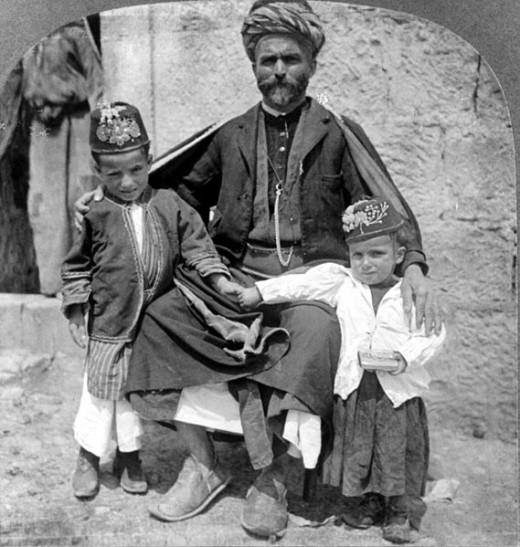
Palestinians, while sharing the heritage of occupying their land for centuries, did not necessarily identify with a national identity until late in the 19th century. A sense of solidarity was certainly experienced during clashes with British imperial policies and Zionism, but nationalism was limited prior to this due to competition among families and clans which enhanced the segmented character of Palestine Arab society. Furthermore, the limited and self-interested perspective of the elite was opposed to the emergence of a unified political movement.
Nationalism first arose in Palestine during the British Mandate period. Palestine was modernizing, increasing education for its children, and forming a middle class. The system prior to this, hamula, which was characterized by competition among different clans, did not help in establishing a specific political identity for Palestine. Proletarianism however, empowered the peasantry in both attitude and economics, and as the middle class grew, so too did Palestinian businesses, schools, labor unions, and overall employment.


Political organizations increased as well, and for the most part were in response to growing tensions with Britain, France, and Zionists. Clubs such as the Muslim-Christian Association, the Literary Society and the Arab Club were “united not only by opposition to Zionism but also by a desire to see Palestine ruled by Faycal as part of Syria.” Other political programs, al-Nadi and al-Muntada, were backed by powerful, rival families but had similar political aspirations. Out of these institutions Palestine national congresses came into existence, making demands concerning political independence and the unity of Greater Syria. A Third Arab Congress, convening in December of 1920, demanded the existence of a semi-independent, Arab, Palestine country. Nationalists at this congress utterly condemned both the Balfour Declaration and Zionist encroachment into Palestinian territory.
Continued Arab Congresses, plus the creation of more and more independently and nationalistically minded political groups (Istiqlal, the Youth Congress, the Supreme Muslim Council) continued to shape the nationalist mindset of not only Palestine, but the Arab region as a whole. World War II saw the end of the Arab Revolt, and the loss of much organization and leadership for Palestinian groups. While Palestinian unrest continued to increase in face of continual loss of land, so too did Jewish efforts at immigration within Palestine given the atrocities carried out against Jews during WWII.
